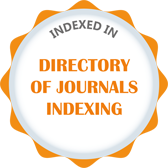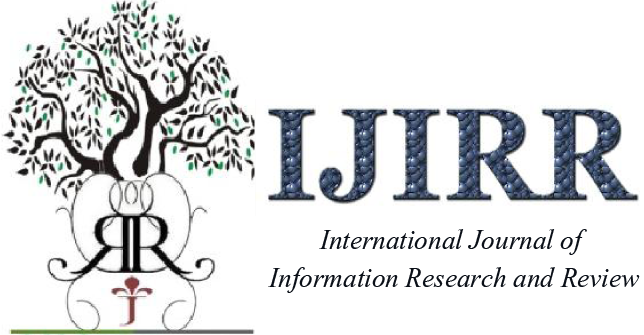Letter to the Editor
Volume 3 Issue 4 - 2018
Essentials of Research Methodology to Dental Undergraduates
Department of Prosthodontics and Crown & Bridge, Government Dental College and Hospital, Medical Campus, Medical Square, Nagpur, Maharashtra, India
*Corresponding Author: Suryakant C Deogade, Department of Prosthodontics and Crown & Bridge, Government Dental College and Hospital, Medical Campus, Medical Square, Nagpur, Maharashtra, India.
Received: June 05, 2018; Published: June 21, 2018
Dear Editor,
Research has been an important and integral component of many predoctoral medical and dental educations since their inception to the health care field. It is focused on training students as clinicians, educators, and researchers in evidence-based clinical practices. [1,2] Additionally publication of a research work by a dental student is seen as beneficial while applying for future specialty training courses/or programs. Research is a systematic approach of reasoning, documenting, analyzing and reporting unusual clinical findings that a practitioner come across in his/or her daily clinical practice. [3]
Research has been an important and integral component of many predoctoral medical and dental educations since their inception to the health care field. It is focused on training students as clinicians, educators, and researchers in evidence-based clinical practices. [1,2] Additionally publication of a research work by a dental student is seen as beneficial while applying for future specialty training courses/or programs. Research is a systematic approach of reasoning, documenting, analyzing and reporting unusual clinical findings that a practitioner come across in his/or her daily clinical practice. [3]
A global congress held on dental education in 2007, recommended that “it should become a norm that a research requirement of some extent should be a part of the undergraduate curriculum.” [4] The importance of research methodology is limited and therefore, understanding its essentials to dental undergraduates is vital in developing dependable knowledge. The need for good research work is to find the best evidence for dental clinical practice (DCP), for specific problems and to invent the methods in reducing the burden of oral and dental diseases with efficient clinical practice. Henceforth, some features critical in research methodology need to be developed during their undergraduate education such as critical thinking, self-directed learning and problem-solving. [5] The deficiency of Indian contribution to international research literature can be sufficed by producing competitive dental graduates who can match international standards. [6] The required skills for this contribution must be incorporated as an integral part of dental education. [7-9] Self-directed programs, research courses and participation in scientific conferences can be made compulsory for dental undergraduates. [10]
In India, dental undergraduates are trained to excel theoretically, but there seems to be a disconnect between what is learned and what is applied in DCP. [11] In other countries, research projects are conducted by undergraduates as an integral part of their curriculum. Few of the frontiers taken like a student scientific day had been arranged by the College of Dentistry in Okahoma University since 1982. [12] A student’s Research Club was established in 1992 at Istanbul University. [13] The first Scholarly article by a South African dental student was published in the early 1960. [14] In the United Kingdom, final year medical students are given two additional points for Pubmed indexed research publications. The spinal surgery department at the Royal Devon and Exter Hospital in UK supports the funds to undergraduate’s scholarship and Fellowships. [15] In College of Dentistry, University of Dammam research is made mandatory component of an internship program. [6]
Dental undergraduates should be engaged in research as part of their curriculum and given opportunities selecting the research topic and methodology. A faculty should be appointed to assist and supervise them to complete their research project. Research must be made an essential and mandatory component of the internship program. Interns should be encouraged to attend scientific conferences and symposia to update themselves with recent developments and advancements in dentistry.
Dental education for the undergraduates should have an opportunity to broaden research design perspectives and will be a significant benefit for all human beings. It is imperative that the statutory committees should take a leading role in promoting, conducting and critically reviewing research on topics related to oral and dental care and its relationship to the overall health of the patient. The research and scientific writing cannot easily be taught in the regular classroom using theory alone. Students need to be doing it practically, which further lead to students to apply accumulated knowledge, fail and subsequently learn from previous experience. This concept of experiential learning is well known to the literature. Experiential learning can inspire students to undertake future research projects. Designing research-based courses and curricula that facilitate the integration of research with curricular content for dental undergraduates remains a relatively new concept and one that is under continual development in Indian dental education. Curricular integration may play a milestone in improving the teaching and learning of complicated and inter-related concepts, providing an opportunity to incorporate research training and objectives into traditional didactic courses.
References
- Ramjiawan B., et al. “An international basic science and clinical research summer program for medical students”. Advances in Physiology Education 36.1 (2012): 27-33.
- Richards D. “Evidence-based dentistry-a challenge for dental education”. Evidence based Dentistry 59 (2006).
- Krithikadatta J. “Research methodology in Dentistry: Part I – The essentials and relevance of research”. Journal of Conservative Dentistry 15.1 (2012): 5-11.
- Divaris K., et al. “The academic environment: The student’s perspective”. European Journal of Dental Education (2008): 120-130.
- Savin-Baden M. “Problem Based Learning Reconsidered. Problem Based Lerning in Higher Education: Untold Stories”. Buckingham: Open University Press (2000): 121-135.
- Khan SQ., et al. “Attitude and Experiences of Undergraduate Dental Students and Interns towards Research”. Saudi Journal of Medicine and Medical Sciences 4.2 (2016): 108-111.
- The University of Iowa College of Dentistry. Dental Student Research Program; (2008).
- New York University College of Dentistry. Annual Research Day and Student Research Competition.
- DePaola DP. “The importance of scientific research and teaching critical thinking in academic dental institutons: Reactions to Dominick P. DePaola’s “The revitalization of U.S. dental education”. Journal of Dental Education 72 (2008): 43-45.
- Shanley D, editor. Dental Education in Europe. Budapest, Hungary: Dental Press Kft; (2001).
- Sharma N., et al. “Knowledge, attitude and practices in research among postgraduate students in dental institutions in Bengaluru City, India”. Journal of Indian Association of Public Health Dentistry 12.3 (2014): 189-193.
- Oklahoma University, College of Dentistry. Student Research and Performance Day.
- Guven Y and Uysal O. “The importance of student research projects in dental education”. European Journal of Dental Education 15.2 (2011): 90-97.
- Grossman ES and Naidoo S. “Final-year South African dental student attitudes toward a research component in the curriculum”. Journal of Dental Education 73.11 (2009): 1306-1312.
- Patel SB., et al. “Getting undergraduate medical students involved in research”. Education for Health (2016).
Citation:
Suryakant C Deogade. “Essentials of Research Methodology to Dental Undergraduates”. Oral Health and Dentistry 3.4 (2018):
692-694.
Copyright: © 2018 Suryakant C Deogade. This is an open-access article distributed under the terms of the Creative Commons Attribution License, which permits unrestricted use, distribution, and reproduction in any medium, provided the original author and source are credited.



































 Scientia Ricerca is licensed and content of this site is available under a Creative Commons Attribution 4.0 International License.
Scientia Ricerca is licensed and content of this site is available under a Creative Commons Attribution 4.0 International License.